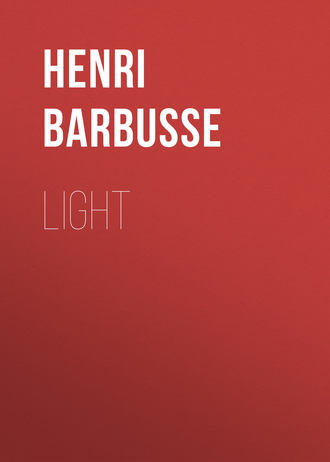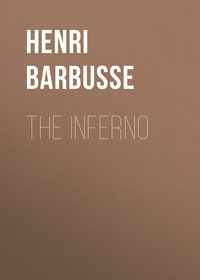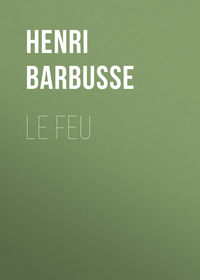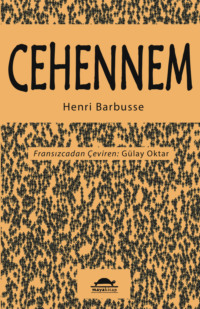 полная версия
полная версияLight
I sit down beside her, and we remain silent. She is there—wholly. Through her black veils I can make out the whiteness of her face and neck and hands—all her beauty, like light enclosed.
For me she had only been a charming picture, a passer-by, one apart, living her own life. Now she has listened to me; she has come at my call; she has brought herself here.
* * * * * *The day has been scorching. Towards the end of the afternoon storm-rain burst over the world and then ceased. One can still hear belated drops falling from the branches which overhang the wall. The air is charged with odors of earth and leaves and flowers, and wreaths of wind go heavily by.
She is the first to speak; she speaks of one thing and another.
I do not know what she is saying; I draw nearer to see her lips; I answer her, "I am always thinking of you."
Hearing these words, she is silent. Her silence grows greater and greater in the shadows. I have drawn still nearer; so near that I feel on my cheek the wing-beat of her breath; so near that her silence caresses me.
Then, to keep myself in countenance, or to smoke, I have struck a match, but I make no use of the gleam at my finger-tips. It shows me Marie, quivering a little; it gilds her pale face. A smile arises on her face; I have seen her full of that smile.
My eyes grow dim and my hands tremble. I wish she would speak.
"Tell me–" Her down-bent neck unfolds, and she lifts her head to speak. At that moment, by the light of the flame that I hold, whose great revealing kindness I am guarding, our eyes fall on an inscription scratched in the wall—a heart—and inside it two initials, H-S. Ah, that design was made by me one evening. Little Helen was lolling there then, and I thought I adored her. For a moment I am overpowered by this apparition of a mistake, bygone and forgotten. Marie does not know; but seeing those initials, and divining a presence between us, she dare not speak.
As the match is on the point of going out I throw it down. The little flame's last flicker has lighted up for me the edge of the poor black serge skirt, so worn that it shines a little, even in the evening, and has shown me the girl's shoe. There is a hole in the heel of the stocking, and we have both seen it. In quick shame, Marie draws her foot under her skirt; and I—I tremble still more that my eyes have touched a little of her maiden flesh, a fragment of her real innocence.
Gently she stands up in the grayness, and puts an end to this first fate-changing meeting.
We return. The obscurity is outstretched all around and against us. Together and alone we go into the following chambers of the night. My eyes follow the sway of her body in her dress against the vaguely luminous background of the wall. Amid the night her dress is night also; she is there—wholly! There is a singing in my ears; an anthem fills the world.
In the street, where there are no more wayfarers, she walks on the edge of the causeway. So that my face may be on a level with hers, I walk beside her in the gutter, and the cold water enters my boots.
And that evening, inflated by mad longing, I am so triumphantly confident that I do not even remember to shake her hand. By her door I said to her, "To-morrow," and she answered, "Yes."
On one of the days which followed, finding myself free in the afternoon, I made my way to the great populous building of flats where she lives. I ascended two dark flights of steps, closely encaged, and followed a long elbowed corridor. Here it is. I knock and enter. Complete silence greets me. There is no one, and acute disappointment runs through me.
I take some hesitant steps in the tiny vestibule, which is lighted by the glass door to the kitchen, wherein I hear the drip of water. I see a room whose curtains invest it with broidered light. There is a bed in it, with a cover of sky-blue satinette shining like the blue of a chromo. It is Marie's room! Her gray silk hat, rose-trimmed, hangs from a nail on the flowery paper. She has not worn it since my aunt's death; and alongside hang black dresses. I enter this bright blue sanctuary, inhabited only by a cold and snow-like light, and orderly and chaste as a picture.
My hand goes out like a thief's. I touch, I stroke these dresses, which are wont to touch Marie. I turn again to the blue-veiled bed. On a whatnot there are books, and their titles invite me; for where her thoughts dwell, the things which occupy her mind—but I leave them. I would rather go near her bed. With a movement at once mad, frightened and trembling, I lift the quilts that clothe it and my gaze enters it, and my knees lean trembling on the edge of this great lifeless thing, which, alone among dead things, is one of soft and supple flesh.
* * * * * *My customary life continues and my work is always the same. I make notes, by the way, of Crillon's honest trivialities; of Brisbille's untimely outbursts; of the rumors anent the Pocard scheme, and the progress of the Association of Avengers, a society to promote national awakening, founded by Monsieur Joseph Bonéas. The same complex and monotonous existence bears me along as it does everybody. But since that tragic night when my sorrow was transformed into joy at the lyke-wake in the old room, in truth the world is no longer what it was. People and things appear to me shadowy and distant when I go out into the current of the crowds; when I am dressing in my room and decide that I look well in black; when I sit up late at my table in the sunshine of hope. Now and again the memory of my aunt comes bodily back to me. Sometimes I hear people pronounce the name of Marie. My body starts when it hears them say "Marie," who know not what they say. And there are moments when our separation throbs so warmly that I do not know whether she is here or absent.
* * * * * *During this walk that we have just had together the summer and the sweetness of living have weighed more than ever on my shoulders. Her huge home, which is such a swarming hive at certain times, is now immensely empty in the labyrinth of its dark stairs and the landings, whence issue the narrow closed streets of its corridors, and where in the corners taps drip upon drain-stones. Our immense—our naked solitude pervades us. An exquisite emotion takes hold of me while we are slowly climbing the steep and methodical way. There is something human in the stairway; in the inevitable shapes of its spiral and its steps cut out of the quick, in the rhythmic repetition of its steps. A round skylight pierces the sloping roof up there, and it is the only light for this part of the people's house, this poor internal city. The darkness which runs down the walls of the well, whence we are striving to emerge step by step, conceals our laborious climb towards that gap of daylight. Shadowed and secret as we are, it seems to me that we are mounting to heaven.
Oppressed by a common languor, we at last sat down side by side on a step. There is no sound in the building under the one round window bending over us. We lean on each other because of the stair's narrowness. Her warmth enters into me; I feel myself agitated by that obscure light which radiates from her. I share with her the heat of her body and her thought itself. The darkness deepens round us. Hardly can I see the crouching girl there, warm and hollowed like a nest.
I call her by her name, very quietly, and it is as though I made a loud avowal! She turns, and it seems that this is the first time I have seen her naked face. "Kiss me," she says; and without speaking we stammer, and murmur, and laugh.
* * * * * *Together we are looking at a little square piece of paper. I found it on the seat which the rose-tree overhangs on the edge of the downward lane. Carefully folded, it had a forgotten look, and it was waiting there, detained for a moment by its timorous weight. A few lines of careful writing cover it. We read it:
"I do not know how speaks the pious heart; nothing I know; th' enraptured martyr I. Only I know the tears that brimming start, your beauty blended with your smile to espy."
Then, having read it, we read it again, moved by a mysterious influence. And we finger the chance-captured paper, without knowing what it is, without understanding very well what it says.
* * * * * *When I asked her to go with me to the cemetery that Sunday, she agreed, as she does to all I ask her. I watched her arms brush the roses as she came in through the gardens. We walked in silence; more and more we are losing the habit of talking to each other. We looked at the latticed and flower-decked square where our aunt sleeps—the garden which is only as big as a woman. Returning from the cemetery by way of the fields, the sun already low, we join hands, seized with triumphant delight.
She is wearing a dress of black delaine, and the skirt, the sleeves and the collar wave in the breeze. Sometimes she turns her radiant face to me and it seems to grow still brighter when she looks at me. Slightly stooping, she walks, though among the grass and flowers whose tints and grace shine in reflection on her forehead and cheeks, she is a giantess. A butterfly precedes us on our path and alights under our eyes, but when we come up it takes wing again, and comes down a little farther and begins all over again; and we smile at the butterfly that thinks of us.
Inlaid with gold by the slanting sun we lead each other, hand in hand, as far as the statue of Flora, which once upon a time a lord of the manor raised on the fringe of the wood. Against the abiding background of distant heights the goddess stands, half-naked, in the beautiful ripe light. Her fair hips are draped with a veil of still whiter stone, like a linen garment. Before the old moss-mellowed pedestal I pressed Marie desperately to my heart. Then, in the sacred solitude of the wood, I put my hands upon her, and so that she might be like the goddess I unfastened her black bodice, lowered the ribbon shoulder-straps of her chemise, and laid bare her wide and rounded bosom.
She yielded to the adoration with lowered head, and her eyes magnificently troubled, red-flushing with blood and sunshine.
I put my lips on hers. Until that day, whenever I kissed her, her lips submitted. This time she gave me back my long caress, and even her eyes closed upon it. Then she stands there with her hands crossed on her glorious throat, her red, wet lips ajar. She stands there, apart, yet united to me, and her heart on her lips.
She has covered her bosom again. The breeze is suddenly gusty. The apple trees in the orchards are shaken and scatter bird-like jetsam in space; and in that bright green paddock yonder the rows of out-hung linen dance in the sunshine. The sky darkens; the wind rises and prevails. It was that very day of the gale. It assaults our two bodies on the flank of the hill; it comes out of infinity and sets roaring the tawny forest foliage. We can see its agitation behind the black grille of the trunks. It makes us dizzy to watch the swift displacement of the gray-veiled sky, and from cloud to cloud a bird seems hurled, like a stone. We go down towards the bottom of the valley, clinging to the slope, an offering to the deepest breath of heaven, driven forward yet holding each other back.
So, gorged with the gale and deafened by the universal concert of space that goes through our ears, we find sanctuary on the river bank. The water flows between trees whose highest foliage is intermingled. By a dark footpath, soft and damp, under the ogive of the branches, we follow this crystal-paved cloister of green shadow. We come on a flat-bottomed boat, used by the anglers. I make Marie enter it, and it yields and groans under her weight. By the strokes of two old oars we descend the current.
It seems to our hearts and our inventing eyes that the banks take flight on either side—it is the scenery of bushes and trees which retreats. We—we abide! But the boat grounds among tall reeds. Marie is half reclining and does not speak. I draw myself towards her on my knees, and the boat quivers as I do. Her face in silence calls me; she calls me wholly. With her prostrate body, surrendered and disordered, she calls me.
I possess her—she is mine! In sublime docility she yields to my violent caress. Now she is mine—mine forever! Henceforth let what may befall; let the years go by and the winters follow the summers, she is mine, and my life is granted me! Proudly I think of the great and famous lovers whom we resemble. I perceive that there is no recognized law which can stand against the might of love. And under the transient wing of the foliage, amid the continuous recessional of heaven and earth, we repeat "never"; we repeat "always"; and we proclaim it to eternity.
* * * * * *The leaves are falling; the year draws near to its end; the wedding is arranged to take place about Christmas.
That decision was mine; Marie said "yes," as usual, and her father, absorbed all the day in figures, would emerge from them at night, like a shipwrecked man, seeing darkly, passive, except on rare occasions when he had fits of mad obstinacy, and no one knew why.
In the early morning sometimes, when I was climbing Chestnut Hill on my way to work, Marie would appear before me at a corner, in the pale and blushing dawn. We would walk on together, bathed in those fresh fires, and would watch the town at our feet rising again from its ashes. Or, on my way back, she would suddenly be there, and we would walk side by side towards her home. We loved each other too much to be able to talk. A very few words we exchanged just to entwine our voices, and in speaking of other people we smiled at each other.
One day, about that time, Monsieur the Marquis of Monthyon had the kindly thought of asking us both to an evening party at the castle, with several leading people of our quarter. When all the guests were gathered in a huge gallery, adorned with busts which sat in state between high curtains of red damask, the Marquis took it into his head to cut off the electricity. In a lordly way he liked heavy practical jokes—I was just smiling at Marie, who was standing near me in the middle of the crowded gallery, when suddenly it was dark. I put out my arms and drew her to me. She responded with a spirit she had not shown before, our lips met more passionately than ever, and our single body swayed among the invisible, ejaculating throng that elbowed and jostled us. The light flashed again. We had loosed our hold. Ah, it was not Marie whom I had clasped! The woman fled with a stifled exclamation of shame and indignation towards him who she believed had embraced her, and who had seen nothing. Confused, and as though still blind, I rejoined Marie, but I was myself again with difficulty. In spite of all, that kiss which had suddenly brought me in naked contact with a complete stranger remained to me an extraordinary and infernal delight. Afterwards, I thought I recognized the woman by her blue dress, half seen at the same time as the gleam of her neck after that brief and dazzling incident. But there were three of them somewhat alike. I never knew which of those unknown women concealed within her flesh the half of the thrill that I could not shake off all the evening.
* * * * * *There was a large gathering at the wedding. The Marquis and Marchioness of Monthyon appeared at the sacristy. Brisbille, by good luck, stayed away. Good sectarian that he was, he only acknowledged civil marriages. I was a little shamefaced to see march past, taking their share of the fine and tranquil smile distributed by Marie, some women who had formerly been my mistresses—Madame Lacaille, nervous, subtle, mystical; big Victorine and her good-natured rotundity, who had welcomed me any time and anywhere; and Madeleine Chaine; and slender Antonia above all, with the Italian woman's ardent and theatrical face, ebony-framed, and wearing a hat of Parisian splendor. For Antonia is very elegant since she married Véron. I could not help wincing when I saw that lanky woman, who had clung to me in venturesome rooms, now assiduous around us in her ceremonious attire. But how far off and obliterated all that was!
CHAPTER V
DAY BY DAY
We rearranged the house. We did not alter the general arrangement, nor the places of the heavy furniture—that would have been too great a change. But we cast out all the dusty old stuff, the fossilized and worthless knick-knacks that Mame had accumulated. The photographs on the walls, which were dying of jaundice and debility, and which no longer stood for anybody, because of the greatness of time, we cleared out of their imitation tortoiseshell and buried in the depths of drawers.
I bought some furniture, and as we sniffed the odor of varnish which hung about for a long time in the lower room, we said, "This is the real thing." And, indeed, our home was pretty much like the middle-class establishments of our quarter and everywhere. Is it not the only really proud moment here on earth, when we can say, "I, too!"
Years went by. There was nothing remarkable in our life. When I came home in the evening, Marie, who often had not been out and had kept on her dressing-gown and plaits, used to say, "There's been nothing to speak of to-day."
The aeroplanes were appearing at that time. We talked about them, and saw photographs of them in the papers. One Sunday we saw one from our window. We had heard the chopped-up noise of its engine expanding over the sky; and down below, the townsfolk on their doorsteps, raised their heads towards the ceiling of their streets. Rattling space was marked with a dot. We kept our eyes on it and saw the great flat and noisy insect grow bigger and bigger, silhouetting the black of its angles and partitioned lines against the airy wadding of the clouds. When its headlong flight had passed, when it had dwindled in our eyes and ears amid the new world of sounds, which it drew in its train, Marie sighed dreamily.
"I would like," she said, "to go up in an aeroplane, into the wind—into the sky!"
One spring we talked a lot about a trip we would take some day. Some railway posters had been stuck on the walls of the old tin works, that the Pocard scheme was going to transfigure. We looked at them the day they were freshly brilliant in their wet varnish and their smell of paste. We preferred the bill about Corsica, which showed seaside landscapes, harbors with picturesque people in the foreground and a purple mountain behind, all among garlands. And later, even when stiffened and torn and cracking in the wind, that poster attracted us.
One evening, in the kitchen, when we had just come in—there are memories which mysteriously outlive the rest—and Marie was lighting the fire, with her hat on and her hands wiped out in the twilight by the grime of the coal, she said, "We'll make that trip later!"
Sometimes it happened that we went out, she and I, during the week. I looked about me and shared my thoughts with her. Never very talkative, she would listen to me. Coming out of the Place de l'Eglise, which used to affect us so much not long ago, we often used to meet Jean and Genevieve Trompson, near the sunken post where an old jam pot lies on the ground. Everybody used to say of these two, "They'll separate, you'll see; that's what comes of loving each other too much; it was madness, I always said so." And hearing these things, unfortunately true, Marie would murmur, with a sort of obstinate gentleness, "Love is sacred."
Returning, not far from the anachronistic and clandestine Eudo's lair, we used to hear the coughing parrot. That old bird, worn threadbare, and of a faded green hue, never ceased to imitate the fits of coughing which two years before had torn Adolphe Piot's lungs, who died in the midst of his family under such sad circumstances. Those days we would return with our ears full of the obstinate clamor of that recording bird, which had set itself fiercely to immortalize the noise that passed for a moment through the world, and toss the echoes of an ancient calamity, of which everybody had ceased to think.
Almost the only people about us are Marthe, my little sister-in-law, who is six years old, and resembles her sister like a surprising miniature; my father-in-law, who is gradually annihilating himself; and Crillon. This last lives always contented in the same shop while time goes by, like his father and his grandfather, and the cobbler of the fable, his eternal ancestor. Under his square cap, on the edge of his glazed niche, he soliloquizes, while he smokes the short and juicy pipe which joins him in talking and spitting—indeed, he seems to be answering it. A lonely toiler, his lot is increasingly hard, and almost worthless. He often comes in to us to do little jobs—mend a table leg, re-seat a chair, replace a tile. Then he says, "There's summat I must tell you–"
So he retails the gossip of the district, for it is against his conscience, as he frankly avows, to conceal what he knows. And Heaven knows, there is gossip enough in our quarter!—a complete network, above and below, of quarrels, intrigues and deceptions, woven around man, woman and the public in general. One says, "It can't be true!" and then thinks about something else.
And Crillon, in face of all this perversity, all this wrong-doing, smiles! I like to see that happy smile of innocence on the lowly worker's face. He is better than I, and he even understands life better, with his unfailing good sense.
I say to him, "But are there not any bad customs and vices? Alcoholism, for instance?"
"Yes," says Crillon, "as long as you don't exarrergate it. I don't like exarrergations, and I find as much of it among the pestimists as among the opticions. Drink, you say! It's chiefly that folks haven't enough charitableness, mind you. They blame all these poor devils that drink and they think themselves clever! And they're envious, too; if they wasn't that, tell me, would they stand there in stony peterified silence before the underhand goings-on of bigger folks? That's what it is, at bottom of us. Let me tell you now. I'll say nothing against Termite, though he's a poacher, and for the castle folks that's worse than all, but if yon bandit of a Brisbille weren't the anarchist he is and frightening everybody, I'd excuse him his dirty nose and even not taking it out of a pint pot all the week through. It isn't a crime, isn't only being a good boozer. We've got to look ahead and have a broad spirit, as Monsieur Joseph says. Tolerantness! We all want it, eh?"
"You're a good sort," I say.
"I'm a man, like everybody," proudly replies Crillon. "It's not that I hold by accustomary ideas; I'm not an antiquitary, but I don't like to single-arise myself. If I'm a botcher in life, it's cos I'm the same as others—no less," he says, straightening up. And standing still more erect, he adds, "Nor no more, neither!"
When we are not chatting we read aloud. There is a very fine library at the factory, selected by Madame Valentine Gozlan from works of an educational or moral kind, for the use of the staff. Marie, whose imagination goes further afield than mine, and who has not my anxieties, directs the reading. She opens a book and reads aloud while I take my ease, looking at the pastel portrait which hangs just opposite the window. On the glass which entombs the picture I see the gently moving and puffing reflection of the fidgety window curtains, and the face of that glazed portrait becomes blurred with broken streaks and all kinds of wave marks.
"Ah, these adventures!" Marie sometimes sighs, at the end of a chapter; "these things that never happen!"
"Thank Heaven," I cry.
"Alas," she replies.
Even when people live together they differ more than they think!
At other times Marie reads to herself, quite silently. I surprise her absorbed in this occupation. It even happens that she applies herself thus to poetry. In her set and stooping face her eyes come and go over the abbreviated lines of the verses. From time to time she raises them and looks up at the sky, and—vastly further than the visible sky—at all that escapes from the little cage of words.
And sometimes we are lightly touched with boredom.
* * * * * *One evening Marie informed me that the canary was dead, and she began to cry, as she showed me the open cage and the bird which lay at the bottom, with its feet curled up, as rumpled and stark as the little yellow plaything of a doll. I sympathized with her sorrow; but her tears were endless, and I found her emotion disproportionate.
"Come now," I said, "after all, a bird's only a bird, a mere point that moved a little in a corner of the room. What then? What about the thousands of birds that die, and the people that die, and the poor?" But she shook her head, insisted on grieving, tried to prove to me that it was momentous and that she was right.







